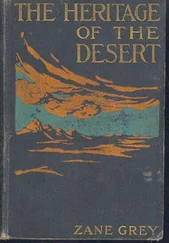Julius Birge - The Awakening of the Desert
Здесь есть возможность читать онлайн «Julius Birge - The Awakening of the Desert» — ознакомительный отрывок электронной книги совершенно бесплатно, а после прочтения отрывка купить полную версию. В некоторых случаях можно слушать аудио, скачать через торрент в формате fb2 и присутствует краткое содержание. Жанр: foreign_language, foreign_antique, foreign_prose, на английском языке. Описание произведения, (предисловие) а так же отзывы посетителей доступны на портале библиотеки ЛибКат.
- Название:The Awakening of the Desert
- Автор:
- Жанр:
- Год:неизвестен
- ISBN:нет данных
- Рейтинг книги:5 / 5. Голосов: 1
-
Избранное:Добавить в избранное
- Отзывы:
-
Ваша оценка:
- 100
- 1
- 2
- 3
- 4
- 5
The Awakening of the Desert: краткое содержание, описание и аннотация
Предлагаем к чтению аннотацию, описание, краткое содержание или предисловие (зависит от того, что написал сам автор книги «The Awakening of the Desert»). Если вы не нашли необходимую информацию о книге — напишите в комментариях, мы постараемся отыскать её.
The Awakening of the Desert — читать онлайн ознакомительный отрывок
Ниже представлен текст книги, разбитый по страницам. Система сохранения места последней прочитанной страницы, позволяет с удобством читать онлайн бесплатно книгу «The Awakening of the Desert», без необходимости каждый раз заново искать на чём Вы остановились. Поставьте закладку, и сможете в любой момент перейти на страницу, на которой закончили чтение.
Интервал:
Закладка:
Before sunset the train reached Harrington's Pond, the objective point of the first night's camp. The cooks at once pitched their tent, while the teamsters, having corralled the wagons into a circle, prepared to turn the cattle loose to feed upon the range. Before they were released, Whitmore shouted to the driver inside the circle:
"Now boys, everybody must look at his oxen mighty careful so as to know them and know where they belong in the teams, because if you don't you'll have a tussle in the morning picking out your stock and yoking them right when they'll be mixed up with four hundred other oxen."
Hearing this admonition, Gus Scoville, who had long been a store clerk, stood beside his oxen in a state of doubt and dire perplexity and finally opened his heart:
"Say Jule, these oxen all look just alike to me. How in thunder is a fellow going to know them in the morning; it's hard enough to know some people."
"Why Gus, they have lots of expression in their faces, and know each other mighty well. Say, I'll tell you how to work it, get a black rag and tear it into long strings and tie a strip around the tail of each ox."
I don't know from whose old coat Gus tore the black lining, but the oxen were soon decorated with emblems of mourning. The guards to watch the stock having been assigned, the men came down to the realities of camp life: no more china plates set by dainty hands on white linen tablecloths; no more delicate tidbits such as a housewife in a comfortable home so often serves; no easy chairs in which to rest in comfort, and no cleanly beds in which to pass the night, – yet no one was disappointed, and good spirits prevailed. The tin plates with bacon and hot bread, and the big tin cups of coffee, without milk, were disposed of with evident relish, born of exercise and good digestion.
After the earlier evening hours had been whiled away with song and jest, one by one the pilgrims retired to their respective covered wagons, wrapped their blankets round them and maybe with boots beneath their heads for a pillow, sought the peace of sleep. Now and then the voice of some exuberant youth yet untamed would break the stillness of the night with an old song inappropriate to the hour, and from out some remote wagon another would join in the refrain.
As the mariner on the first glimpse of the morning light looks out toward the sky to see what are the signs for the coming day, so on their first morning in camp the boys, hearing the murmur of raindrops on their wagon covers or tents, looked out to take an observation, and discovered indications of an approaching storm. After the first preliminary gusts, the weather settled down into a steady rain, which continued thirty-six hours. It was deemed inexpedient so early in the trip to subject the men to unnecessary exposure, and the party was continued in camp. There were many duties to perform. The guard for the stock was changed periodically, but the boys in general devoted their energies to keeping dry and to drying out what had become wet. This was no easy matter, because the camp became surrounded by a sea of mud, and little comfort could be derived from an open, out-of-door bonfire, upon which the heavens were sending a drenching rain. The meals were served largely in the wagons, in some of which a number of the party would gather for mutual comfort and warmth, the food being conveyed to them by self-sacrificing young men, who with a pail of hot coffee in one hand and tinware in the other, braved the elements for the common good.
They were already beginning to learn who were the good fellows, ready to do service, and who were the "gentlemen," too selfish or indifferent to share fully with others the responsibilities and sacrifices of this mode of life. Travel of the kind upon which they were embarking brings out the inward characteristics of men more quickly and thoroughly than can anything else. The spirit of Burns' Grace before Meat is consoling when all does not go smoothly:
"Some hae meat and canna eat,
And some wad eat that want it;
But we hae meat and we can eat,
Sae let the Lord be thankit."
The gloomy day was followed by a night of inky blackness, during which the April wind made the wagon covers flap incessantly, while the rain steadily rattled on the sheets and the air was chilly and penetrating. The conditions were not favorable to hilarity, and there was little noise except that caused by the elements; so until noon of the following day everyone sought to make the best of existing conditions, believing that, as had always been their observation, there never was a night so dark, nor a storm so severe that it was not followed by a sunburst.
CHAPTER III
The Advancing Wave of Civilization
HAVE you ever carefully watched the movements or caught the earnest spirit of the immigrant who, after traveling many hundreds of miles along the difficult roads through an unbroken country to a strange land, there seeks a spot where he may build a home for his family? Many of the young men in our party were on such a mission. That we may better understand the motives which inspired them and the movement of which they became a part, a retrospective glance seems almost necessary.
Having late in the thirties become the first scion of the pioneers in the country where I was born, I ought to be qualified to throw some light upon the experiences of the frontiersman, because primeval Wisconsin, as it lay untouched by civilization, and the inflow of its population as I saw it, left upon my mind vivid impressions. There was a blending of pathos and humor in the arduous lives of these builders of the nation.
Without then comprehending its significance, I had observed from time to time the arrival of sturdy and intelligent home-seekers from New England and New York, transporting their household effects in country wagons along the old, but almost impassable territorial road. I was once led to accompany two other children, who, with their parents, were on such a pilgrimage. In their two-horse wagon were tightly packed a little furniture and a few boxes. The wagon cover had been turned that the view might be unobstructed. At one time the immigrants paused as they forded a running brook; they looked up and down the green valley; then they drove out from the road to the summit of a nearby knoll, where their horses were again rested. Here the father rose to his feet; he turned his eyes earnestly and intently now in one direction and now in another across the inviting stretches of unoccupied territory. An entrancing panorama of small valleys and vistas of groves, all clothed in soft verdure of June, was spread out before him; not a thing of man's construction, nor even a domestic animal, was visible on the landscape, except their faithful dog, which was scurrying among the hazel bushes.
To me there seemed a long delay. The father finally lifted his little, young wife so that she stood upon the wagon seat, supporting her with an encircling arm, his two boys standing before him. The children looked with wondering eyes, as he pointed to a far-away green meadow traversed by a brook, from near which rose a wooded slope. He asked if that would be a good place for a home. A simple but expressive nod, a tear in her eye, and a kiss on her husband's cheek, were the only signs of approval that the sick and weary wife was able to give. In later years, when I had learned their history, I knew better the meaning of the mother's emotion. The father drove down the bushy slope to the meadow, then taking his axe he crossed to the woodland, and there he blazed a tree as an evidence of his claim. Returning to the shelter of another settler's home, he was welcomed, as were all comers, by the pioneers, and one little room was for many days the home of the two families once accustomed to eastern comforts. There they remained until the father could drive fifty miles to the Government land office, there perfect his title, and return to "roll up" his log cabin.
Читать дальшеИнтервал:
Закладка:
Похожие книги на «The Awakening of the Desert»
Представляем Вашему вниманию похожие книги на «The Awakening of the Desert» списком для выбора. Мы отобрали схожую по названию и смыслу литературу в надежде предоставить читателям больше вариантов отыскать новые, интересные, ещё непрочитанные произведения.
Обсуждение, отзывы о книге «The Awakening of the Desert» и просто собственные мнения читателей. Оставьте ваши комментарии, напишите, что Вы думаете о произведении, его смысле или главных героях. Укажите что конкретно понравилось, а что нет, и почему Вы так считаете.











